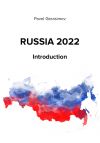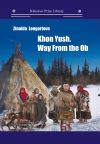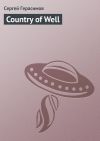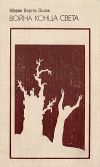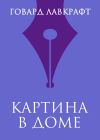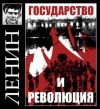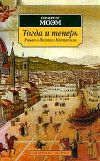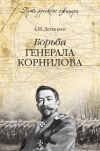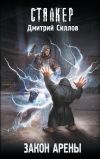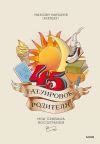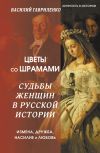Текст книги "Английский язык для студентов сельскохозяйственных вузов"
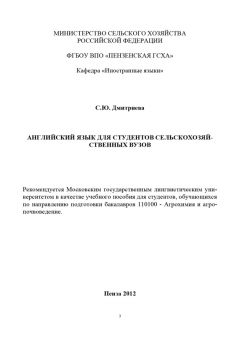
Автор книги: Светлана Дмитриева
Жанр: Учебная литература, Детские книги
сообщить о неприемлемом содержимом
Текущая страница: 5 (всего у книги 14 страниц) [доступный отрывок для чтения: 5 страниц]
LESSON 3
Task 1. Answer the questions.
1) What country are you from?
2) What is the official name of Russia?
3) Is it a republic?
4) Who is the head of the state in Russia?
5) Who is the head of the government?
6) What is the capital?
7) What is the total area of the country?
8) How big is its population?
9) What do you know about natural and climatic conditions in Russia?
10) What are the main agricultural areas of the country?
 Task 2. Do you know your country well? Prove it. In groups, complete the table.
Task 2. Do you know your country well? Prove it. In groups, complete the table.
Russia

 Task 3. Memorize the following words and phrases.
Task 3. Memorize the following words and phrases.
1. population [΄popju΄lei∫ən] – население
2. to be situated [΄sitjueitid] – находиться, располагаться
3. former [΄fo:mə] – бывший
4. to evolve [i΄volv] – развиваться, образоваться в ходе развития
5. to share [∫εə] – делить (напр. границу)
6. area [΄εəriə] – площадь, область
7. favourable [΄feivərəbl] geographical position – благоприятное геогр. п.
8. plain [plein] – равнина
9. freshwater [΄fre∫΄wo:tə] – пресноводный
10. degree [di΄gri:] – градус, степень
11. plenty [΄plenti] – изобилие
12. diverse [dai΄və:s] – разнообразный
13. to supply [sə΄plai] ( with) – снабжать, поставлять
14. to meet the demands of people – удовлетворять потребности населения
15. produce [΄prodju:s] – продукция
16. state [steit] power [΄pauə] – гос. власть
17. to be exercised [΄eksəsaizd] by … – осуществляться
18. to enjoy [in΄ ʤ oi] – наслаждаться
19. to suffer [΄s٨fə] (from) – страдать
20. distinct [dis΄tiŋkt] – чёткий, чётко выраженный
21. harvest [΄ha:vist] – урожай
22. to harvest – собирать урожай
23. to sow [səu] (sowed, sown) – сеять
24. to grow [grəu] ( grew [gru:], grown ) – расти, выращивать
25. crop– с/х культура; winter (spring) crop – озимая ( яровая) культура
26. to be covered [΄k٨vəd] with … – покрываться
27. profit [΄profit] – прибыль; profitable – рентабельный, выгодный
28. vegetable [΄ve ʤ itəbl] production– овощеводство
29. grain-growing [΄grein΄grəuiŋ] – возделывание зерновых культур
30. horticulture [΄ho:tik٨lt∫ə] – садоводство
31. fertilizer [΄fə:tilaizə] – удобрение
32. sugar beet [΄∫ugəbi:t] – сахарная свёкла
33. flax [flæks] – лён
34. farming [΄fa:miŋ] – 1) земледелие; 2) с/х; 3) фермерство
35. animal [΄æniməl] husbandry [΄h٨zbəndri] – животноводство
36. arable – пахотный ( pastoral – пастбищный)
37. agricultural [΄ægri΄k٨lt∫ərəl] production [prə΄d٨k∫ən] – с/х производство
38. environment [in΄vaiərənmənt] – окр. cреда
39. to enable [i΄neibl] – позволять
40. to improve [im΄pru:v] – улучшать, совершенствовать
41. variety [və΄raiəti] – сорт, вид; high yielding v. – высокоурожайный сорт
42. oil-bearing crop [΄oil΄bεəriŋ] – масличная культура
43. livestock [΄laivstok] – скот, поголовье
44. feeding [΄fi: diŋ] – кормление
45. livestock department – животноводческое помещение
46. pedigreed [΄pedigri:d] stock [stok] – породистый скот
47. breed – порода; a highly productive b. – высоко продуктивная порода
48. maintenance [΄meintənəns] – содержание, техническое обслуживание
49. machinery [mə΄∫i:nəri] – оборудование, техника
50. equipment [i΄kwipmənt] – оборудование

Word-building
 Write the verbs corresponding to the following nouns and translate them:
Write the verbs corresponding to the following nouns and translate them:
enjoyment, planter, tiller, passage, harvester, appearance, knowledge, building, spreader, fertilizer, achievement, development, pressure, direction.
Task 4. Matching the words from list a) to those of list b) write as many word combinations as you can.
a) vast, former, to enjoy, to supply with, winter, to grow, freshwater, favourable.
b) fish, plain, crop, new machinery, sunny weather, vegetables, conditions, season.
 Task 5. In pairs, act out and translate the dialogues.
Task 5. In pairs, act out and translate the dialogues.
a) – Have you ever been to Moscow?
– No, I haven’t. I am here for the first time. But seeing Moscow has always been my dream. And what about you?
– I live in Moscow. What is your first impression of the capital?
– Oh, it is such a big and beautiful city. I like it very much.
– What places of interest have you visited?
– I have been to Tretyakov Gallery, the Kremlin, the Bolshoy Theater. But the place I liked best of all is Red Square.
b) Nora: Daddy! My uncle John is arriving tomorrow! Here is the telegram.
Philip Stanley: What a pleasant surprise! Nora, I haven’t seen him for ages!
Nora: His wife is coming with him. What is her name?
Philip Stanley: Her name is Olga. She is Russian.
Nora: Really?! It’s news to me.
Philip Stanley: He met her in Siberia two years ago. He worked in Novosibirsk scientific centre. A group of specialists from Great Britain were installing (устанавливали) new equipment there.
Nora: Daddy, have you ever been to Russia?
Philip Stanley: Yes, I have. As an exchange student.
Nora: Great! What is your impression of Russia? How large is it? Is it cold there? Did you see much snow in Russia? What are the Russians like?
Philip Stanley: Not so many questions at once, Nora. Russia is a vast country. If I’m not mistaken, the former Soviet Union is nearly three times the area of the USA and ninety times that of Great Britain.
Nora: Did you get there by air or by sea?
Philip Stanley: By air. Modern air liners cover the distance from London to Moscow in three hour time.
Nora: What about the climate of Russia? Is it mild?
Philip Stanley: I don’t think so. Believe it or not, but its climate differs in different parts of the country. In the centre of Russia you can see much snow in winter, but in the south the temperature is above zero.
Nora: Do you like Russian people?
Philip Stanley: Yes, I do. They are kind, open-hearted and very pleasant to deal with.
Task 6. Find English equivalents for the following phrases in the dialogues:
Я не видел его целую вечность. Хочешь верь, хочешь нет …; Это для меня новость! Какой приятный сюрприз! Если я не ошибаюсь …; Думаю, что нет. С ними очень легко иметь дело; первое впечатление.
Text 1
The Russian Federation
The Russian Federation covers much of eastern Europe and Northern Asia, occupying about 75 % of the territory of the former Soviet Union from which it evolved. Russia shares land borders with Norway, Finland, Belarus, Ukraine, Georgia, Azerbaijan, Kazakhstan, Mongolia, China and North Korea.
The total land area is 17 075 400 square km. Its population is 147 000 000 people. The official language is Russian. The capital of Russia is Moscow.
The greater part of Russia’s territory is a vast plain with low mountain ranges and long rivers. The largest rivers are the Lena and the Volga. Lake Baikal is the largest freshwater lake in Asia and Europe and the deepest in the world.
Most of its territory has truly continental climate with distinct seasons ( cold winter and hot summer ). The country is rich in iron ore, manganese, copper, gold, zinc, lead, natural gas and oil.
The Russian Federation is a republic with democratic federal state structure. State power is exercised by the President of the Russian Federation, the bicameral Federal Assembly ( the Federation Council and the State Duma ), the government and the courts.
Russia still finds itself in a process of transformation towards a market economy. All industries, agricultural and scientific areas are represented to various extents in the national economy.
Exercise 1. Read and translate the text.
Exercise 2. Read the following geographical names correctly.
Asia [΄ei∫ə]
Europe [΄juərəp]
Ukraine [ju΄krein]
Norway [΄no:wei]
Georgia [΄ʤ o: ʤ iə]
China [´t∫ainə]
Lithuania [‚liθu´einjə]
Azerbaijan [‚æzəbai΄ ʤ a:n]
Exercise 3. Supply the missing parts.
E.g. – … 75 % of the former USSR territory.
– Russia occupies about 75 % of the former USSR territory.
a) … Norway, Finland, Poland, China.
b) Moscow …
c) … 147 000 000 people.
d) … the deepest lake in the world.
e) The President of Russia …
f) Russia is rich in …
g) … in a process … market economy.
 Exercise 4. In pairs, confirm the truth of the following statements.
Exercise 4. In pairs, confirm the truth of the following statements.
Speech patterns: – According to the text … – Согласно тексту …
– Yes, certainly. – Да, конечно.
– Quite so. – Именно так.
1) Russia is a vast country.
2) Russia has many neighbours.
3) Russia is a republic.
4) The President of Russia is the head of the state.
5) Russia is rich in mineral resources.
6) In Russia it is cold in winter and it is hot in summer.
7) Many changes have taken place in the national economy.
Exercise 6. Looking at a geographical map of Russia find the main districts of mineral deposits. Begin with:
Great natural gas ( oil, gold, iron ore, manganese, …) deposits are in …
 Exercise 7. Make up a plan and retell the text.
Exercise 7. Make up a plan and retell the text.
Text 2
State System of the Russian Federation
The Russian Federation is set up by the Constitution of 1993. Under the Constitution Russia is a presidentional republic. The federal government consists of three branches: legislative, executive and judicial. Each of them is checked and balanced by the President.
The legislative power is vested in the Federal Assembly. It consists of two chambers. The Upper Chamber is the Council of Federation; the Lower Chamber is the State Duma.
Each chamber is headed by the Speaker. Legislature may be initiated in either of the two chambers. But to become a law a bill must be approved by both Chambers and signed by the President. The President may veto the bill.
The President is commander-in-chief of the armed forces, he makes treaties, enforces laws, appoints ministers to be approved by the Federal Assembly.
The executive power belongs to the Government which is headed by the Prime Minister. The first action of the Prime Minister on appointment is to form the Cabinet.
The judicial branch is represented by the Constitutional Court, the Supreme Court and the regional courts.
The members of the Federal Assembly are elected by popular vote for a fouryear period.
Exercise 1. Scan the text.
Exercise 2. Match the phrases with their translation.

Exercise 3. Find in the text the sentence(s) about the President’s duties and powers.
Exercise 4. Complete the table and comment it.

Text 3
…
Every season is beautiful in its own way. In Russia we enjoy or suffer all kinds of climate. The changes of seasons and weather are very interesting. In southern parts, of course, the weather changes very little. But in the centre of the country the difference in temperature is sometimes 60 degrees. In other words, in summer we may have + 30º C and in winter –30º C.
Autumn is the season of plenty, the season of harvesting. Farmers harvest crops, sow winter crops, plough the soil. September, the first autumn month, is usually very fine. But in October cold winds begin to blow. Leaves are yellow, red and brown. It often rains. In November the fog sometimes is too thick to walk and drive.
Then winter sets in. Nature sleeps. Everything is covered with snow and ice. The air is clear and cold. But there are days during a snowstorm when the temperature suddenly rises and the snow changes to sleet and hail. People slip and fall everywhere. On sunny days everything sparkles in the sun. It is frosty, but beautiful. In winter farmers repair farm machines and implements: ploughs, harrows, tillers, planters, tractors, combine-harvesters, manure spreaders and others.
A few months pass and spring sets in. Nature awakens from its long winter dream. The days become longer and the nights get shorter. In March the weather is often windy. But winds bring warm temperature. The snow starts melting, the first flowers appear: snowdrops, tulips, daffodils. Trees are covered with green leaves. Birds sing their songs and build their nests. In spring farmers start their work in the fields. It is a very busy time not only for farmers. People in towns go to their gardens. They dig the soil, fertilize it, plant all necessary crops: potatoes, sugar beet, carrots, onions, cucumbers. They prepare seedlings of tomatoes, pepper, cabbage. Fruit trees are in blossom. It’s a magnificent sight.
Summer is the hottest season of the year. Students and school children take their exams, have summer practice and holidays. It is pleasant to go for a walk, to lie in the sun, to swim in the sea. First fruit and berries appear: cherries, strawberries, gooseberries, black and red currant, apples and apricots. And what is your favorite season?
Exercise 1. Scan the text and suggest a title for it.
Exercise 2. Put questions to the sentences.
a) Every season is beautiful in its own way.
b) The range in temperatures was very large.
c) Farmers harvest crops, plough the soil and sow winter crops.
d) Autumn is a rainy and foggy season.
e) Nature sleeps in winter.
f) Sometimes the snow starts melting.
g) Spring has come.
h) The first flowers are appearing.
i) People enjoy summer.
Exercise 3. Complete the chart. Use text 3.

 Exercise 4. Supply the missing parts.
Exercise 4. Supply the missing parts.
– What a nice day, isn’t it?
– Yes, the sky … the sun …
– What … your …?
– It is difficult to say. Every season has its own beauty!
– What … in autumn?
– Farmers have much to do in autumn. They …
– …?
– I don’t like winter. But I like sunny frosty days.
– Where …?
– I live in the country. In winter we have a rest, but in spring farmers …
– Not only farmers but many people in cities and towns …
– … a garden?
– Yes, I have, but my garden is rather small. I grow …
– Where … holidays?
– I don’t know yet, but I’d like to go to the sea shore.
 Exercise 5. Describe your favourite season.
Exercise 5. Describe your favourite season.
Word-building
Make up compounds. E.g. house+wife=housewife

Text 4
Farming in the Russian Federation
Farming is a prime sector of agriculture in Russia. The country’s natural and climatic conditions make it possible to grow many food, fodder, industrial and other crops and to supply diverse produce for the population.
Grain-growing is the basis of agricultural production in Russia. Spring wheat and winter wheat are the main grain crops in the sown area and total harvest. They are grown in many regions of the Russian Federation. Farmers obtain high wheat yields in severe natural and climatic conditions using proper cultivation methods and the best varieties. But they do not always succeed in resisting drought which is quite frequent.
Cultivation of maize in southern areas is an important source for increasing grain production in Russia. In the central belt, where there is insufficient heat, maize is grown for silage.
The country’s diverse natural and climatic conditions enable farmers to grow a wide assortment of vegetables and to concentrate production in the most favourable zones. On the whole, potatoes and other vegetables grow on 5 % of the cultivated area.
Melon crops, especially watermelons, grow on large areas in the south-eastern part of the Russian Federation, because there is an abundance of sunshine and sandy soils there.
Industrial crops, such as sugar beet, sunflower and flax are of great importance for our national economy.
Sugar beet is one of the most important industrial and fodder crops in the Russian Federation. The geography of sugar beet cultivation has radically changed. While in the past the areas under sugar beet were concentrated chiefly in the Central BlackEarth zone, now farmers grow it in the North Caucasus and Siberia.
Sunflower has always predominated among oil-bearing crops in Russia. It contributes two-thirds of the vegetable oil produced in the country. It is also important for animal husbandry as valuable feedstuff.
Farming in Russia is developing, but it faces many problems. Our specialists must improve land use, introduce modern cultivation methods, develop the production of high yield varieties, use up-to date machinery in order to raise the efficiency of agriculture.
Exercise 1. Read and translate the text.
Exercise 2. Answer the question: “Have you got any new information?”
Exercise 3. Find English equivalents for the following words and word combinations in the text:
главный, позволяют, снабжать, возделывание зерновых культур, посевная площадь, суровый, не всегда удаётся, центральный чернозёмный район, недостаточный, силос, возделываемая площадь, арбузы, песчаные почвы, растительное масло, ценный кормовой продукт.
Exercise 4. Replace the underlined words by their synonyms from the text.
1) Russian agriculture faces many problems.
2) The main business of this farm is grain-growing.
3) The environment favours cultivation of corn.
4) Agriculture provides different produce for the population.
5) Melon crops are grown on sandy soils.
6) Peasants select the best varieties.
7) It is difficult to prevent fire in dry weather conditions.
8) Much sunshine is necessary for fruit growing.
9) New farm equipment is an important factor.
Exercise 5. Answer the questions.
1) Is it possible to grow many food, fodder and industrial crops in our country?
2) Grain-growing is the basis of agricultural production in Russia, isn’t it?
3) What grain crops predominate in Russia?
4) Where do farmers cultivate maize?
5) What makes possible to grow a wide assortment of vegetables in Russia?
6) What can you say about melon crops?
7) What industrial crops are grown in our country?
8) What can you say about the geography of sugar beet cultivation?
9) What crop predominates among oil bearing crops?
10) What is necessary to make Russian farming more efficient?
 Exercise 6. Retell the text.
Exercise 6. Retell the text.
Text 5
Animal Husbandry in Russia
Animal husbandry plays an important part in Russian agriculture. As a result of the development of livestock raising the number of livestock has increased and the share of pedigreed stock has sharply risen and their productivity has gone up.
The raising of cattle is of prime significance. The main specialization trends in cattle-raising have emerged, depending on the economic and natural conditions of different areas. These are dairy farming ( in areas near big cities and industrial areas) and the raising of cattle for beef and milk and for beef only.
There are also several trends in pig-breeding, namely, the production of pork and bacon and the fattening of adult animals for lard. Specialization in hog production is acquiring much importance now. Some farms rear young stock and then turn it over to other farms for fattening. An increase in the number of pigs and greater production of pork directly depends on fodder resources. Pig breeding farms are concentrated in areas which grow maize, barley, wheat, and also sugar beet and potatoes.
Sheep-raising has a long history in Russia. Many breeds of sheep yielding a wide range of wool, sheepskins and meat have been developed in our country. In no other sector of animal husbandry is specialization so distinctly pronounced as in sheepraising. In the 19th century landowners in the southern areas of Russia bred finefleece sheep (тонкорунная порода овец). In later years, in view of a rise in world wheat prices and consequent plowing up of pastures, the number of fine-fleece sheep dropped and now Russia has to import wool.
There is a great number of poultry farms of different types in Russia. Farmers improve existing breeds through selection. Chickens make up about 80 % of all poultry. The number of geese, ducks and turkeys is on the increase in our country.
Horse-raising is of ancient origin in Russia. In former times the horse was the main possession of a peasant household. The situation has radically changed. The horse plays a subsidiary part in agriculture, but it is needed on farms for various jobs. But nevertheless some horse-raising enterprises are engaged in breeding thoroughbred (чистокровные) horses which are famous all over the world.
Our industry provides animal husbandry with diverse machinery and equipment, which enable to improve feeding and maintenance of farm animals and to increase mechanization of work in livestock departments.
Exercise 1. Read and translate the text.
Exercise 2. Make up sentences.

Exercise 3. Divide the text into several logical parts and define their topic.
Use: I think this text should be divided into 2,3,4,5 … logical parts.
The first ( second, third, fourth …) part is about ( or: deals with, describes )…
Exercise 4. Using information from the text prove that these statements are true and give reasons for the facts expressed in them.
a) It is very important to develop cattle-raising in Russia.
b) Dairy-farming is especially significant near big cities.
c) Pig-breeding farms are concentrated near arable farms.
d) Wool production has dropped in Russia.
e) Horse-raising has lost its position in agriculture.
f) The future of agriculture depends on science.
g) There are many problems in animal husbandry in our country.
 Exercise 5. In pairs, discuss the question: “What farm animals would you rather rear?”
Exercise 5. In pairs, discuss the question: “What farm animals would you rather rear?”
Use: As for me … – Что касается меня …
It is more profitable to rear … because … – Выгоднее, ( прибыльнее) разводить … потому что …
You are mistaken. – Вы ошибаетесь.
It looks like that. – Похоже на то.
I’m not sure. – Я не уверен.
For ideas: demand ( спрос) for the produce, profit, to sell, enough fodder, low costs.
Exercise 6. Find the key sentences of the text.
Exercise 7. Find sentences with: The Present Perfect Active; The Past Simple Active.
 Exercise 8. On the basis of texts 4 and 5 prepare a report: “Russian Agriculture”.
Exercise 8. On the basis of texts 4 and 5 prepare a report: “Russian Agriculture”.
In the Garden
Task 1. Enrich your active vocabulary.
gardener [΄ga: dnə] – садовник
flower-bed [΄flauəbed] – клумба
seedling [΄si: dliŋ] – саженец
to be keen [ki:n] on gardening – увлекаться садоводством
to pick [pik] – выбрать, собирать
potato [pə΄teitəu]
tops [tops] – картофельная ботва
to set on fire [΄faiə] – поджигать
to dig [dig] ( dug [d٨g] ) – копать
to spray [sprei] – опрыскивать
to prune [pru:n] – подрезать
spade [speid] – лопата
rake [reik] – грабли
to turn [tə:n] up – переворачивать
hoe [həu] – мотыга
manure [mə΄njuə] – навоз
root [ru:t] – корень, корнеплод
bulb [b٨lb] – луковица
violets [΄vaiəlits] – фиалки
roses [΄rəuziz] – розы
primroses [΄prim‚rəuziz] – примулы
to add [æd] – добавить
to apply [ə΄plai] – применить
 Task 2. In pairs, act out and translate the dialogues.
Task 2. In pairs, act out and translate the dialogues.
a) – Hello, Andrew! Just doing a bit more in the garden?
– Yes, it is not a very big garden, but there is always much to do. The grass grows so fast in this weather that I can hardly keep it tidy. And how is your garden looking?
– Not bad. I sowed some beans and early peas three weeks ago and they are through now. I hope for a good crop this year. Do you grow many vegetables?
– Not so many. You see, I haven’t so much land as you, and so we like to use the space for flowers. My daffodils (нарциссы) are a picture this year! I’ve never seen them looking so fine. In fact, it is a very good year for bulbs.
– You are right.
b) James Stanley is a farmer. But now he’s come to Liverpool for a couple of days to visit his son Philip. Philip has got a small garden near the house. James and Philip are talking in the garden.
Philip: Will you have a look at my roses? They don’t seem to look very well, and I know that you are something of an expert on roses.
James: Oh, you are flattering me. I’m just very fond of them. I’ll gladly come over and have a look at your roses.
Philip: Here they are – you see they are not making much new growth, and the leaves look dry and lifeless.
James: Yes, I see that. To my mind, it is necessary to prune them a bit more. Then, of course, this soil of yours isn’t very good for roses; it is too light; you need a good clay soil for roses. Have you given them any manure?
Philip: No, to tell you the truth, I’ve been so busy with other things that I’have forgotten all about it.
James: Well, you should give them a bit of good fertilizer and spray those leaves. Then if the weather is very dry go round them with the hoe and keep the ground loose.
Philip: Thanks, I will.
c) – I want to put in two or three rows of early potatoes over there.
– Fine idea! You’ll certainly get a good crop of potatoes from this plot of land, the soil is just the right kind for them.
d) – Doing a bit of work in the garden?
– There is always something to do, you know.
e) – How about using some new techniques of fruit-growing?
– All right. Let’s have a try.
f) – Turning up the soil?
– Spring has come. It’s high time to dig the soil.
g) – What about pulling out (вырвать с корнем) these onions?
– No, I’m not going to do anything of the kind. The onions simply want regular watering.
h) – Pulling out the dahlias?
– Yes, they have wilted.
Task 3. Look through the dialogues again and find English equivalents for the following phrases:
Всегда найдётся чем заняться; Хорошо, давай попробуем; Как насчёт …?; Самое время …; Почва как раз подходит; Взгляни на мои розы; Ты вроде бы в этом разбираешься; Они завяли; суглинистая почва; Сказать по правде, было не до этого; Они уже дали рост; Пройдись вокруг них с мотыгой.
Task 4. Find in the dialogues:
a) elliptical questions;
b) questions implying suggestion Supply the missing parts using elliptical questions or questions implying suggestion.
1) – …
– Yes, I’ve watered the gooseberry bushes; they look lifeless.
2) – …
– Yes, some preparations are necessary for early sowing now.
3) – …
– All right. Let us dig up the empty part of the plot and spread some manure.
4) – …
– I don’t see any reason for it. But let’s have two rows of cucumbers and three rows of radishes.
 Task 5. In pairs, act out a conversation. Situations: a) You like flowers, but you are not much of an expert on them. Ask your partner for some practical advice. b) You have a garden but it is rather small. Discuss with your partner how to use the plot to best advantage.
Task 5. In pairs, act out a conversation. Situations: a) You like flowers, but you are not much of an expert on them. Ask your partner for some practical advice. b) You have a garden but it is rather small. Discuss with your partner how to use the plot to best advantage.
Text 6
Our Farm
Our farm is situated not far from the town. It is a mixed farm, where we grow crops and breed animals. The land area is 1200 ha of which pastures are one third. The soils are different in different parts. But in general we have sandy soils and black soils. Sandy soils are good for maize. We grow maize, wheat, oats, some vegetables and fruit. Our orchards are well-known throughout the region.
Our farm is engaged in cattle breeding as well. We breed cattle for beef and milk. Our produce is in high demand because there is a milk processing enterprise not far from the farm. The head number is six thousand. A lot of them are highly productive breeds. We hope to receive a good profit though there are too many problems. Lack of finance, old equipment, animal diseases – this is only part of our difficulties. But the main problem is a pressing need for high skilled specialists.
Exercise 1. Scan the text.
Exercise 2. Find sentences about the main problems of the farm.
Exercise 3. Choose the facts that are referred to the text.
1) The largest part of the land is grassland.
2) The demand for our produce is high.
3) Farm college trains agricultural specialists for our farm.
4) One of the advantages is our close location to the town.
 Exercise 4. On the basis of texts 2, 3, 4 write a composition. The topic: “How I see Russian agriculture in ten years” While writing it answer the questions:
Exercise 4. On the basis of texts 2, 3, 4 write a composition. The topic: “How I see Russian agriculture in ten years” While writing it answer the questions:
1) Does Russian climate favour the development of agriculture?
2) Is Russia rich in natural resources necessary for agriculture, such as fresh water, rich soil?
3) Who must own (владеть) farmland in the country? Why?
4) How does agriculture influence the environment?
5) How can farmers raise the level of agricultural production in the country?
Use the words: the level of mechanization, new varieties, to use the experience ( опыт) of … to expand ( расширять ), intensification, fertilizers, plant protection means ( средства защиты растений ), scientific development, to prevent pollution ( предотвратить загрязнение ).
Use the model: I’m going to write about … I’ll start with … Firstly, ( secondly) … I must emphasize … Finally …
BE READY
 Act out a press conference between farmers, journalists and representatives of the local government. You are to discuss the main trends of agricultural development in your region.
Act out a press conference between farmers, journalists and representatives of the local government. You are to discuss the main trends of agricultural development in your region.
Use the following phrases:
Let me introduce myself. – Позвольте мне представиться.
I am in charge of … – Я отвечаю за …
We are here to … – Мы собрались здесь, чтобы …
the burning problem of the day – насущная проблема на данный момент
The floor is given to … – Слово предоставляется …
Keep silence please. – Пожалуйста, сохраняйте тишину.
Your questions, please. – Ваши вопросы.
Anything to add? – Есть что добавить?
Let’s discuss … – Давайте обсудим …
Will you stick to the point? – Пожалуйста, поконкретней.
What fertilizers would you recommend? – Какие удобрения Вы бы порекомендовали?
I breed ( grow) … – Я развожу ( выращиваю) …
My farm is profitable. – Моё хозяйство рентабельно.
The land area is … – Площадь земли составляет …
The herd number is … – Поголовье составляет …
The annual profit is … – Годовая прибыль …
I sell my produce … – Я продаю свою продукцию …
I feed my animals with … – Я кормлю животных …
My problems are … – Мои проблемы состоят в следующем …
lack of … – нехватка …
animal diseases – болезни животных
Let’s conclude our discussion. – Давайте подведём итоги.
Work with Diagrams
Grain Crops in Russia in 2001 (%)

Tasks:
a) Speak on grain production in Russia.
Use: 1) This diagram reflects ( shows, gives data on … represents, illustrates …)
2) According to it we can say that …
3) … holds the leading position. It accounts for … ( covers …)
4) The next is …
5) Its share is …
6) And the last position is occupied by …
7) Comparing all these data we can come to the conclusion that …
b) Analyze the state of animal husbandry in the Russian Federation.

Задание на аудирование
1) Перед прослушиванием текста познакомьтесь со словами:
the Earth ( земля ), surface ( поверхность ), borders on ( граничит ), time zones ( часовые пояса ), ores ( руды ), ferrous ( чёрные металлы ), branches ( ветви, органы власти ), legislative ( законодательный ), executive ( исполнительный) judicial ( судебный ), Supreme Court ( Верховный Суд ).
2) Прослушайте текст дважды.
3) Ниже приведен текст. Найдите в нём пять несоответствий прослушанному тексту. Исправьте их.
Text
Russia is the largest country in the world. It covers about one fifth of all the dry land. It is situated in Eastern Europe and it covers Asia. In the north and in the west Russia borders on 14 countries. Russia includes 11 time zones. The country is rich in natural resources.
Внимание! Это не конец книги.
Если начало книги вам понравилось, то полную версию можно приобрести у нашего партнёра - распространителя легального контента. Поддержите автора!Правообладателям!
Данное произведение размещено по согласованию с ООО "ЛитРес" (20% исходного текста). Если размещение книги нарушает чьи-либо права, то сообщите об этом.Читателям!
Оплатили, но не знаете что делать дальше?
